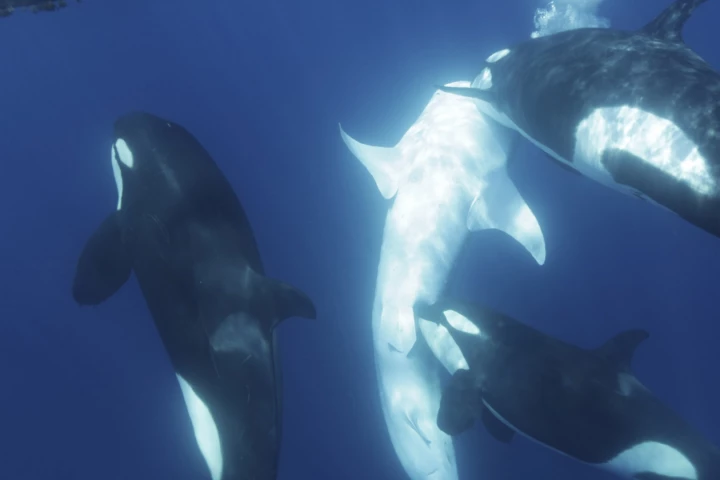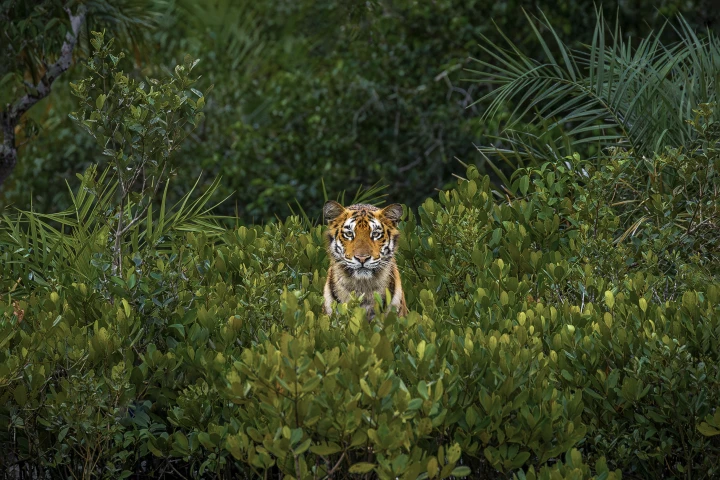Sharks
-
Everyone's favorite prehistoric shark may have been much sleeker and much larger than previously thought. A new study suggests that the megalodon wasn't as stocky as the great white shark, and that it could have reached over 24 m (80 ft) in length.
-
Researchers have found compelling evidence to confirm that a specific pod of clever killer whiles in the Gulf of California has developed an astonishing new skill: hunting enormous whale sharks by attacking their undersides.
-
If you're a surfer who doesn't want to be attacked by great white sharks, your surfboard should be as dark and stealthy as possible … right? Perhaps not, as a new Australian study suggests that a lit-up board may be better at keeping the sharks away.
-
Ordinarily, if you want liquid to flow in only one direction through a pipe, that pipe has to have a flap-type valve – which could fail. Now, scientists have created a new type of more robust one-way-flow pipe, which was inspired by shark intestines.
-
The fossil of an extremely unlucky dugong has been uncovered. The old sea cow had a pretty bad day about 20 million years ago when it was eaten by both a crocodile and a shark.
-
In the event of a shark attack, it's very important to determine which shark species was responsible. A new study indicates that readily available medical gauze can be used by first responders to obtain that information.
-
While you're more likely to win the lottery than become a tasty snack for a great white, shark attacks have long been a real fear for beachgoers. While attacks and fatalities look to be on the rise, scientists are yet to pinpoint exactly why.
-
The Disney-esque hues on bluespotted ribbontail rays come from a unique arrangement of nanostructures, say researchers. The findings, along with those gleaned from studying blue sharks, could help lead to new chemical-free color techniques.
-
For the first time ever, a lone orca has been observed killing and eating a great white shark. Although orcas were already known to hunt great whites in packs or pairs, one had never been seen going solo before. The finding suggests the emergence of a new hunting strategy.
-
Hard though it may be to believe, there has apparently never been a confirmed sighting of a live newborn great white shark. Such may no longer be the case, however, thanks to recently analyzed aerial drone footage shot in California.
-
Most of us picture megalodon as a Jason-Statham-hunting monster that looked like a giant great white shark, but that probably wasn’t the case. A new study re-examines fossil evidence and suggests the creature was longer and more slender than thought.
-
Mangroves may not be the first thing that comes to mind when you think of a forest, but they're both incredible, unique ecosystems and serve as a structural and water-cleaning coastguard. These photos capture the wondrous, otherworldly ecosystems.
Load More











